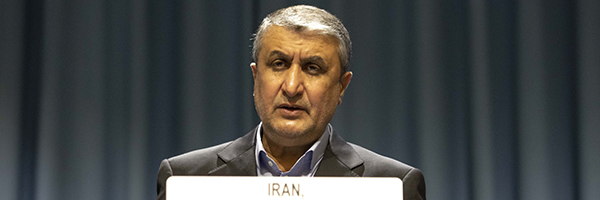
The Cradle, November 12, 2022 — As the nuclear talks remain stalled, Iran is facing a growing domestic threat posed by ongoing, violent riots.
According to an exclusive report by Reuters released on 11 November, the US and the EU are pushing the International Atomic Energy Agency (IAEA) to pass an “essential and urgent” resolution calling for Iran to explain uranium traces allegedly found at a number of undeclared Iranian nuclear sites.
The draft resolution, obtained by the news agency, was sent to the nuclear watchdog’s board of directors on 11 November. The previous day, Iran had agreed to a proposed meeting with the IAEA, likely to take place after its board meeting next week, in order to discuss the allegations, the agency revealed in a 10 November report published by Reuters.
This latest development comes as part of broader efforts to revive the 2015 nuclear agreement between Tehran and Washington, which was scrapped by the Trump administration in 2018.
“(The Board of Governors) decides it is essential and urgent … that Iran acts to fulfill its legal obligations and … take the following actions without delay,” the draft resolution reads.
It also calls on the Islamic Republic to “provide all information, documentation, and answers the agency requires,” and “provide access to locations and material the agency requires, as well as for the taking of samples as deemed appropriate by the agency.”
The IAEA Board of Governors made sure to express “profound concern that the safeguards issues related to three undeclared locations remain outstanding due to insufficient substantive cooperation by Iran.”
In September, Tehran and the IAEA restarted negotiations, centering particularly on the issue of the uranium traces. Iran has fired back at this allegation, referring to it as a fabrication by Israel, who it has previously accused of hijacking the IAEA.
Despite the relaunching of talks, however, the White House announced last month that it does not expect a deal “anytime soon.” The agency’s chief, Rafael Grossi, has also recently said that he was “seriously concerned that there has still been no progress.”
Although at some point in August, the reaching of an agreement seemed imminent, negotiations once again fell into a stalemate as a result of the extensive lobbying campaign undergone by Israel to pressure Washington into abandoning the deal.
Moreover, throughout the negotiation process, the US continued its aggressive, illegal, and indiscriminate sanction policy against Tehran, reinforcing the Iranian suspicion that Washington was never serious about the deal to begin with.
As the revival of the 2015 nuclear agreement seems farther away than ever, Iran faces ongoing and widespread unrest as a result of both extremist attacks and violent riots taking place across the country.
The head of the Russian Security Council, Nikolai Patrushev, as well as former US national security advisor, John Bolton, have both confirmed that the riots are being fueled by foreign intervention.
